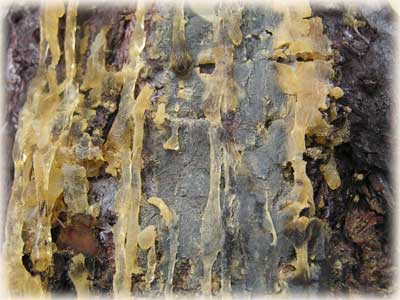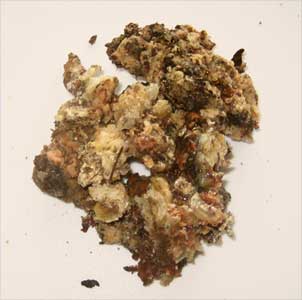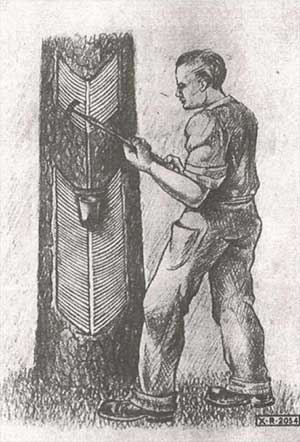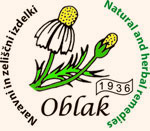| |
|
SPRUCE RESIN
Spruce resin is a very thick, liquid
organic mixture (almost solid) containing essential oils
(turpentine) and resin acids. It is produced in the special
glands of the tree and is then secreted in the resin canals.
It's main purposes are to protect the tree, heal it's wounds
which are caused by external influences or animals (wind,
hail, insects, rodents, etc.), and to prevent drainage of
the tree.
|
|

Naturaly secreted
spruce resin on the lumber. |
|

Gathered spruce
resin with lumber parts. |
|
|
|
|
|
|
More about
Oblak's spruce resin salve ingredients can be read here

|
|
|
|
|
|
|
|
|
|
|
|
|
|
TRADITIONAL FOLK MEDICINE
Healing effects of spruce resin are well
known all around the globe for centuries. Remedies from
spruce resin are used in traditional folk medicine to treat
a wide variety of pathological symptoms, particularly for
healing wounds, ulcers, inflammations and other injuries on
the skin. Spruce resin was also widely used to treat
respiratory problems. Spruce essential oils, which are
contained in resin, helps to disinfect and purify lungs and
respiratory passages, which is why they were used in cases
of asthma, cold, cough and tuberculosis (J.A. Duke and K.K.
Wain, 1981).
The American Indians were using spruce
resin for centuries by combining it with other herbals to
treat wounds and cuts. Very often they also used other parts
of the spruce, for example they were making a so called
spruce beer and a known syrup from spruce foliage that
contained a lot of vitamin C (C. Erichsen-Brown, 1989).
Most European records on the use of
spruce resin ointment can be found in the Scandinavian
countries. A homemade ointment from spruce resin and
unsalted butter, which is used for healing wounds and
ulcers, is even today very popular in Finland (A. Sipponen,
et al., 2008).
|
|

Resin gathering, beginning
of the 19. century.
|
|
Ointment made from spruce resin was also known in some areas
of central Europe. People were mostly making it themselves
for purposes of treating wounds, inflammations of joints and
other similar pathological symptoms. It was also used for
treating livestock, especially for treating the inflammation
of cows udder. A known Slovenian herbalist, friar-priest
Simon Ašič, also wrote about a wide variety of healing
effects of spruce and spruce resin (P. Simon Ašič, 1992). In
his book we can read that remedies from spruce resin
stimulate stiff muscles, increase our immunity and
efficiency and that they are also very effective for
treating skin diseases, scabs, skin eruptions, ulcers and
wound healing. |
| |
| |
| Literature:
 Duke, J.A. and Wain, K.K. 1981. Medicinal plants of the
world. Computer index with more than 85,000 entries.
Duke, J.A. and Wain, K.K. 1981. Medicinal plants of the
world. Computer index with more than 85,000 entries.
 Charlotte Erichsen-Brown, Medicinal and other uses of
North American plants Courier, Dover Publications, 1989
Charlotte Erichsen-Brown, Medicinal and other uses of
North American plants Courier, Dover Publications, 1989
 A. Sipponen, et al., British Journal of Dermatology
2008;158:1055-1062.
A. Sipponen, et al., British Journal of Dermatology
2008;158:1055-1062.
 P. Simon Ašič, Priročnik za nabiranje zdravilnih rastlin,
Mohorjeva družba, 1992
P. Simon Ašič, Priročnik za nabiranje zdravilnih rastlin,
Mohorjeva družba, 1992 |
| |
| |
|
 |
|
|
|